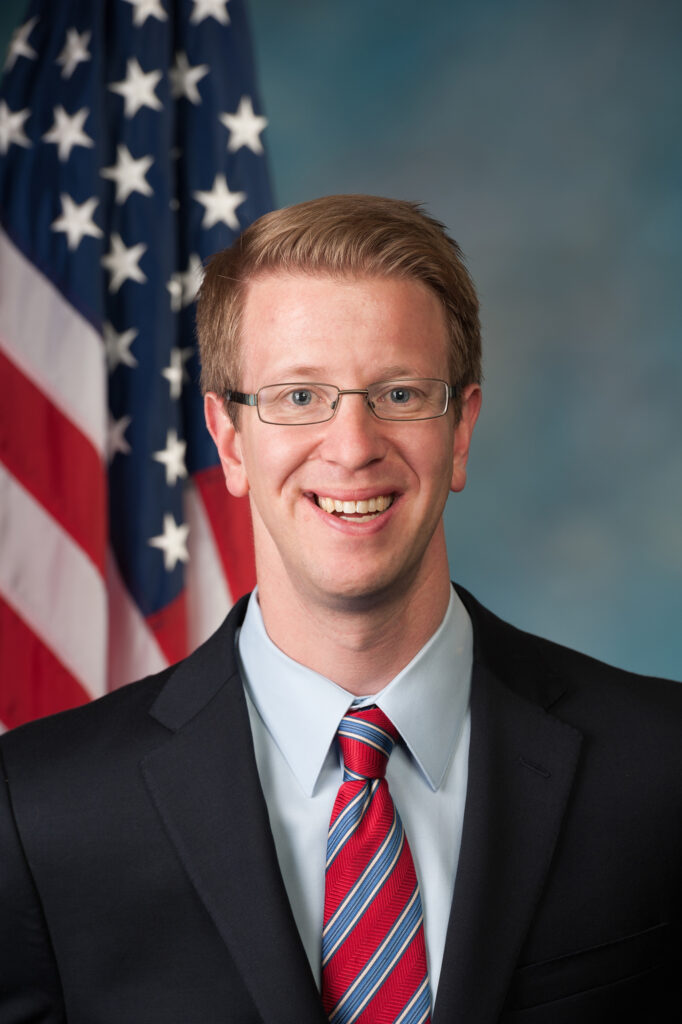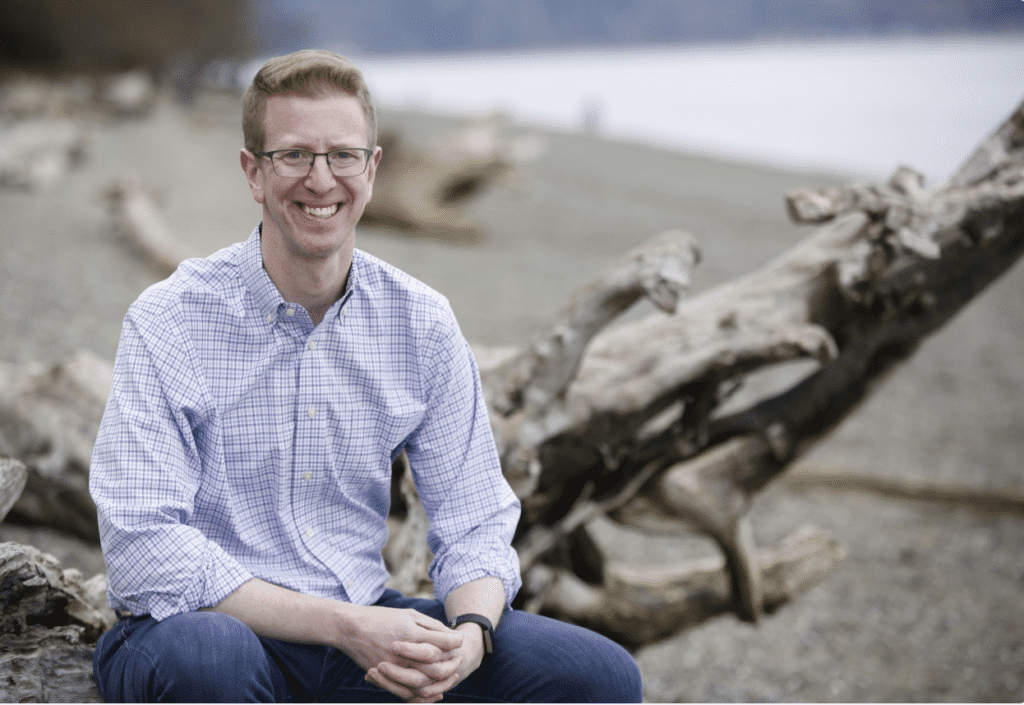Community Government
Kilmer closing the book on political career
Derek Kilmer is turning the page.
After 12 years representing northwest Washington in Congress, the Gig Harbor Democrat announced in November 2023 that he wouldn’t seek reelection to a seventh term. His tenure ends Jan. 3.
Kilmer, 50, conceivably could’ve matched the 36-year run of his predecessor, Norm Dicks. Neither faced serious election challenges in the blue-collar Sixth District that encompasses the Olympic and Kitsap peninsulas and most of the city of Tacoma. But that never was the plan.
“I’ve looked at life as a series of chapters, and when I complete this year it will have been 20 years of elected office,” said Kilmer, who previously served eight years in the Legislature. “That felt about right to me.
“There are people who are leaving Congress who are saying, ‘Good riddance, I hate this place.’ I’m not one of those. I like this work. It’s been an honor to do this work. I’m proud of my team and what it’s been able to accomplish, but it felt like it was time to look toward the next chapter.”
Chapter 1: Economic Development
After earning a bachelor’s degree in public policy from Princeton University and a doctorate in comparative social policy from the University of Oxford in England, Kilmer composed his first career chapter, in economic development. He worked as a consultant for McKinsey & Company, helping businesses, nonprofits and government agencies run more efficiently, then as a business retention manager with the Economic Development Board for Tacoma-Pierce County, helping to keep jobs and attract new employers.
The Chapter 3 plot will segue to philanthropy. The Rockefeller Foundation announced on Oct. 21 that it named Kilmer as senior vice president of a newly created United States program and policy team.
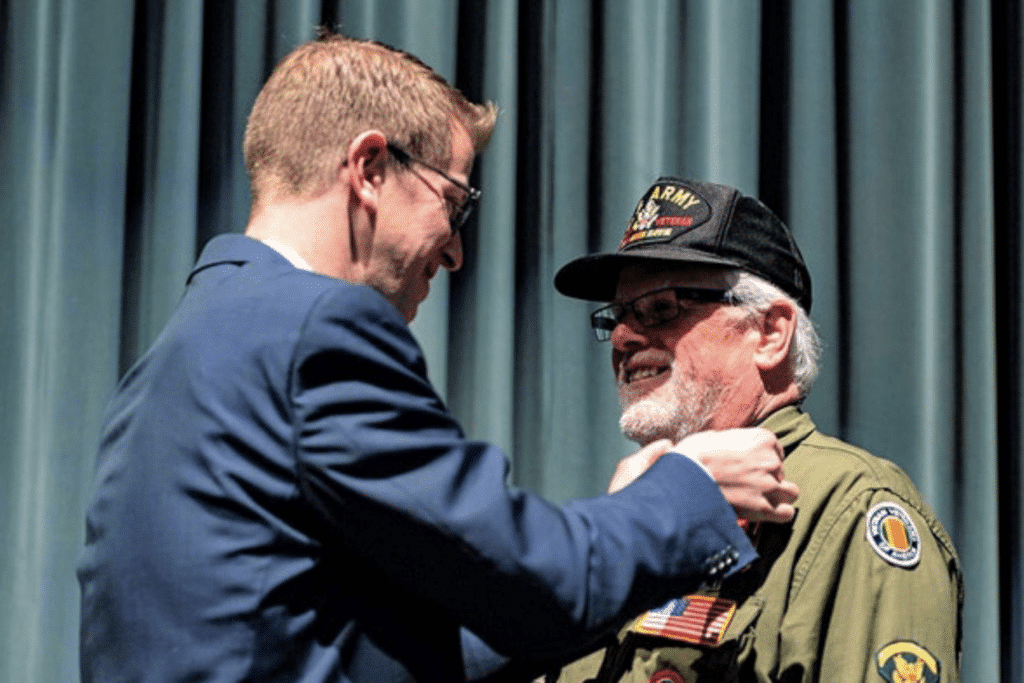
Derek Kilmer was a strong advocate for the military members and their families, civilian defense workers and veterans. Photo courtesy of Derek Kilmer’s office
The foundation, created in 1913 by Standard Oil’s Rockefeller family, is the second-oldest major philanthropic institution in America and the 30th largest in the world. Today, its mission is to advance human opportunity and reverse the climate crisis by transitioning food, health, energy and finance systems.
Chapter 3: Philanthropy
Projects Kilmer will oversee include: Invest in Our Future, focused on ensuring communities can equitably access the benefits of climate policy; the Pro-Working Family Tax Policy Initiative, committed to using fiscal policy to reduce economic inequality and support working families; Global Economic Recovery, concentrating on improving the quantity and quality of development finance to support progress on global climate and development goals; and the Economic Opportunity Collective, aimed at mobilizing capital for small U.S. businesses.
“If you look at the overlap of what I worked on as an elected official, it largely focused on economic opportunity, democracy, climate and health,” Kilmer said during a phone interview Thursday, Dec. 19. “The capacity to continue working on issues passionate to me that matter to me and matter to our neck of the woods is something I’m excited about.”
Kilmer will operate out of Washington, D.C., “but obviously I’ve got a lot of family in the state of Washington, so I won’t be a stranger,” he said. His kids were tykes when he became a congressman. Aven, 18, and Sophie, 15, are now in college and high school. Kilmer’s parents live in Port Angeles.
Chapter 2: Politics
Kilmer’s elected official chapter opened in 2004 when he became “grumpy” that his ability to grow jobs was greatly affected by government action and inaction, he said in his final floor remarks on Dec. 6. So he ran for a 26th Legislative District House seat and edged incumbent Republican Rep. Lois McMahan by 1,009 votes. That was his last tight race.
In 2006, he rose to the state Senate after Republican Bob Oke retired, handily beating Jim Hines to claim the seat and Marty McClendon in 2010 to retain it.
Then Dicks told Kilmer he wasn’t going to run for Congress again, “and you should figure out whether this is something you want to do,” Kilmer said in his final remarks. It was. He thumped Republican Bill Driscoll 59%-41% in the 2012 general election and was never seriously challenged thereafter.
“The chance to create more economic opportunity for more people in more places was the main reason I came here,” Kilmer said in his floor remarks. “It was my why.
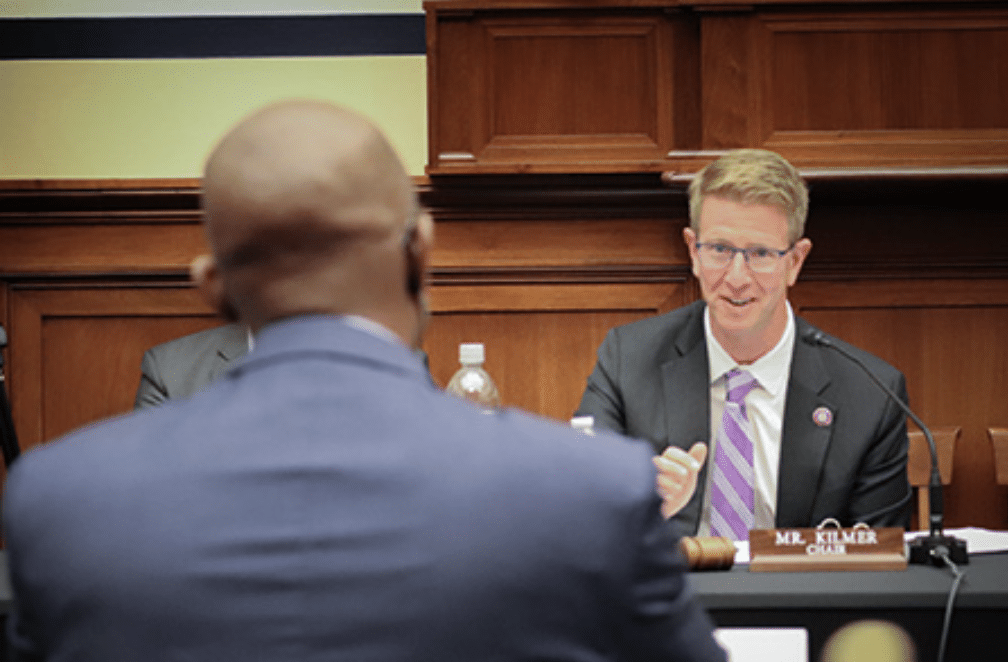
Derek Kilmer chaired the Modernization Committee that worked on fixing the way government works. Photo courtesy of Derek Kilmer’s office
“I came to Congress because I wanted to grow jobs and help the area where I grew up. It has been the honor of my life getting to represent my hometown, and our entire region. Whether it’s been helping folks get access to broadband, securing funding for ports, fighting for our community hospitals, delivering funds to address flooding, securing new investments to restore Puget Sound, or helping ensure the federal government lives up to its trust and treaty obligations to Tribal Nations, I’ve been honored to work for our region.”
Helped depressed economies like PA
Kilmer’s proudest achievements include introducing the Rebuilding Economies and Creating Opportunities for More People to Excel (RECOMPETE) Act as part of the CHIPS and Science Act.
Born and raised in Port Angeles, Kilmer saw firsthand how the region’s timber-centered economy struggled, and the impact it had on families and communities.
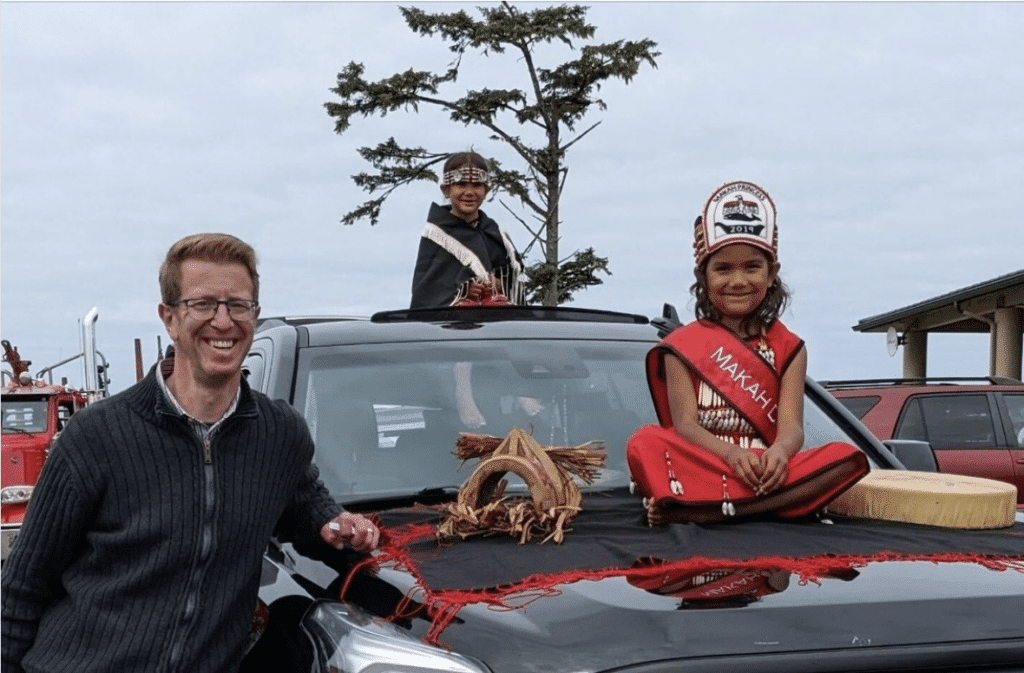
Derek Kilmer worked with the district’s 12 tribes to combat the climate crisis, including moving them to higher ground, and and to strengthen tribal health care and housing options. Photo courtesy of Derek Kilmer
The bill established a new program to empower persistently distressed communities with flexible 10-year grants. The grants must meet economic development needs, create good jobs, invest in workers and businesses, and connect residents to opportunities and resources for long-term success.
It became the most popular program in the history of the Economic Development Administration, receiving 565 applications from 49 states.
Made inroads in fixing Congress
Kilmer also prizes his work on the Select Committee on the Modernization of Congress — nicknamed the Fix Congress Committee — that proposed 202 bipartisan recommendations. Congress has implemented half of them; and another quarter are on their way.
“We showed that Congress can do things better when folks check their partisan agendas at the door and just focus on working together,” Kilmer said in his parting remarks.
The committee functioned differently. Modernization committee members didn’t sit by party or at a dais but beside opposite party members around a table. They had one staff and did everything together.
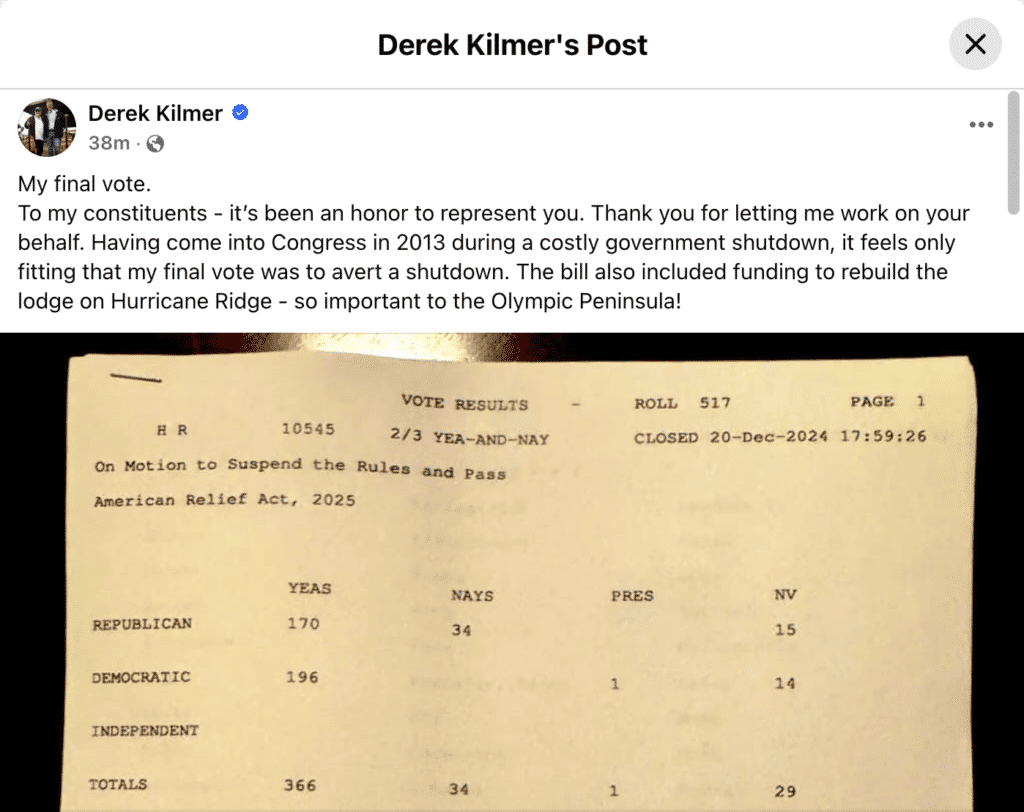
Kilmer Facebook post showing his final vote, on a bill to fund the government for three months and avert a shutdown.
“A lot of those issues were incredibly substantive and over time will make a very big difference for the institution,” Kilmer said. “Reforming everything from how Congress recruits and retains and trains staff to how it uses technology to some of the rules of the institution, even some recommendations focused on civility and collaboration. I acknowledge that it’s not going to fix all of it overnight, but I think it matters.”
Congress showed it still has a long way to go to be fixed. During Kilmer’s phone interview last Thursday, it displayed disfunction while trying to pass a spending bill to avert a government shutdown. It finally passed one the next day. It was the final bill Kilmer voted on.
Always seemed to be around
Despite the 2,400 miles separating Washington, D.C. and Seattle, Kilmer returned to the district often. He made about 30 round trips a year for 12 years. It’s 7 hours, 20 minutes door to door. Besides creating more economic opportunity for more people in more places and making government work better for everybody, his office’s strategic plan emphasized being accessible and accountable.
“Part of that is recognizing that people often feel distant and that their government is far away from them and they aren’t part of it,” Kilmer said in the interview last week. “President Kennedy said in democracies we all hold office as citizens, so it was a priority for me to make sure people could exercise that responsibility.”

